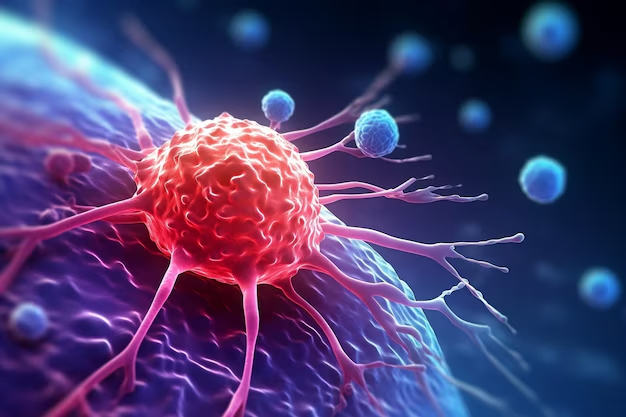Current Context
Researchers at Mumbai’s Tata Memorial Hospital, India’s largest cancer hospital, have used data from 60,000 patients to establish a bio-imaging bank for cancer.
About
- Given the escalating cases of cancer, the shortage of specialists poses a significant challenge in curbing fatalities.
- To address this gap, Mumbai’s Tata Memorial Hospital (TMH), the biggest cancer hospital in India, is turning to artificial intelligence (AI).
- The hospital is utilising deep learning to craft a cancer-specific tailored algorithm that aids in early-stage cancer detection.
What is a ‘Bio-Imaging Bank’?
- The project’s overarching goal is to create a robust repository encompassing radiology and pathology images, intricately linked with clinical information, outcome data, treatment specifics, and additional metadata.
- This comprehensive resource is strategically designed for the training, validation, and rigorous testing of AI algorithms.
- Initially focusing on head neck cancers and lung cancers, with a minimum of 1000 patients for each cancer type, the project aims to surpass the committed patient data for both cancer types by its completion date.
Alongside database creation, the project involves training and testing multiple AI algorithms using the gathered data, addressing medically relevant tasks such as:
- screening for lymph node metastases,
- nucleus segmentation and classification,
- therapy response prediction.biomarker prediction (for instance, HPV in oropharyngeal and EGFR in lung cancer), and
- therapy response prediction.
Funded by
- The multi-institutional project is funded by the Department of Biotechnology, in collaboration with IIT-Bombay, RGCIRC-New Delhi, AIIMS-New Delhi, and PGIMER-Chandigarh.
How does AI help in early cancer detection?
AI contributes significantly to cancer detection by emulating the human brain’s information processing. In cancer diagnosis, AI analyses radiological and pathological images, learning from extensive datasets to recognise unique features associated with various cancers.
- This technology facilitates early detection by identifying tissue changes and potential malignancies.
Comprehensive imaging generates longitudinal patient data, aiding in understanding behaviour, treatment response, disease recurrence, and overall survival.
- AI and machine learning protocols utilise this data to develop predictive models for tumour survival and guide treatment aggressiveness.
The creation of a tumour image bank involves segmenting and annotating images, outlining tumours, identifying different features, and annotating them as malignant, inflammatory, or edematous.
- Biopsy results, histopathology, immunohistochemistry reports, and genomic sequences are correlated with images and clinical data to develop diverse algorithms.
- This approach allows TMH to develop algorithms for different tumours, assess treatment responses directly from images, and avoid unnecessary chemotherapy for predicted non-responders, offering clinical utility.
AI is poised to play a transformative role in cancer treatment, particularly in mitigating fatalities in rural India.
- AI’s potential lies in tailoring treatment approaches based on diverse patient profiles, and thus optimising therapy outcomes.
- AI, with a simple click, swiftly detects cancer, eliminating the need for extensive tests and enabling even general practitioners to diagnose complex cancers.
- This technology is poised to significantly enhance precision in cancer solutions.
Current Progress
- TMH has already added the data of 60,000 patients into the biobank over the previous year, started using AI to reduce radiation exposure for paediatric patients undergoing CT scans.
- This ensures a significant decrease in radiation exposure to children, maintaining diagnostic quality without compromise.
The National Cancer Grid (NCG)
- The National Cancer Grid (NCG) is an initiative of the Government of India through the Department of Atomic Energy and its grant-in-aid institution, the Tata Memorial Centre, to create a network of cancer centres, research institutes, patient groups and charitable institutions across India.
- Its objective of developing uniform standards of patient care for prevention, diagnosis, and treatment of cancer; providing specialized training and education in oncology and facilitating collaborative basic, translational and clinical research in cancer.
- NCG today has over 270 hospitals in its network across India.
Aims and Objectives:
- Evolve and implement uniform standard of cancer care across India
- Offer the state of art services for those afflicted by cancer.
- Create Human Resources to tackle the rising need of cancer care.
- Gauge the magnitude trend and type of national cancer problem through registry and run appropriate epidemiological intervention studies to prevent cancer.
- Direct cancer research in clinic and laboratory to offer cost effective solution to cancer in India.

